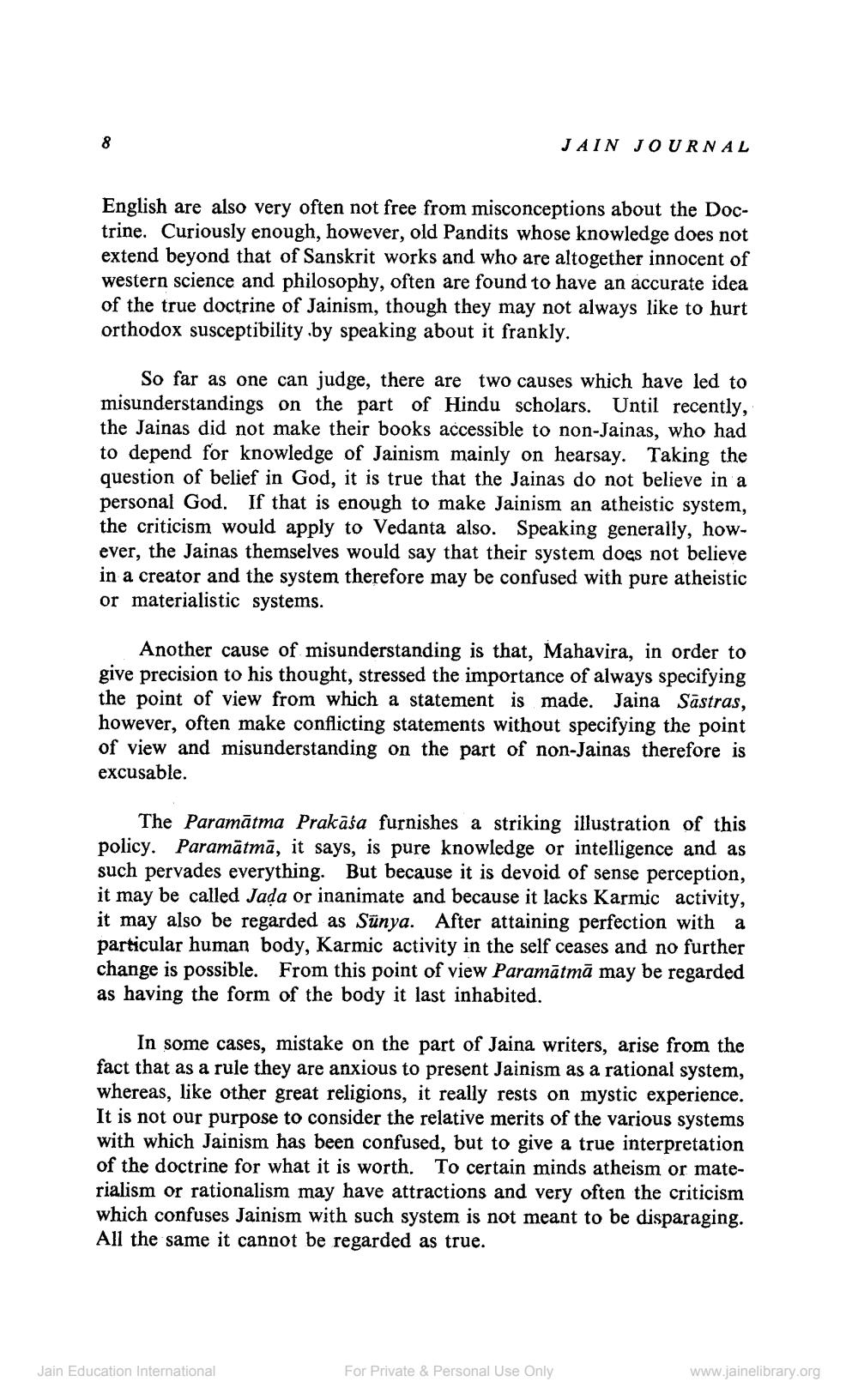________________
8
English are also very often not free from misconceptions about the Doctrine. Curiously enough, however, old Pandits whose knowledge does not extend beyond that of Sanskrit works and who are altogether innocent of western science and philosophy, often are found to have an accurate idea of the true doctrine of Jainism, though they may not always like to hurt orthodox susceptibility by speaking about it frankly.
JAIN JOURNAL
So far as one can judge, there are two causes which have led to misunderstandings on the part of Hindu scholars. Until recently, the Jainas did not make their books accessible to non-Jainas, who had to depend for knowledge of Jainism mainly on hearsay. Taking the question of belief in God, it is true that the Jainas do not believe in a personal God. If that is enough to make Jainism an atheistic system, the criticism would apply to Vedanta also. Speaking generally, however, the Jainas themselves would say that their system does not believe in a creator and the system therefore may be confused with pure atheistic or materialistic systems.
Another cause of misunderstanding is that, Mahavira, in order to give precision to his thought, stressed the importance of always specifying the point of view from which a statement is made. Jaina Sastras, however, often make conflicting statements without specifying the point of view and misunderstanding on the part of non-Jainas therefore is excusable.
The Paramatma Prakasa furnishes a striking illustration of this policy. Paramātmā, it says, is pure knowledge or intelligence and as such pervades everything. But because it is devoid of sense perception, it may be called Jaḍa or inanimate and because it lacks Karmic activity, it may also be regarded as Sünya. After attaining perfection with a particular human body, Karmic activity in the self ceases and no further change is possible. From this point of view Paramātmā may be regarded as having the form of the body it last inhabited.
In some cases, mistake on the part of Jaina writers, arise from the fact that as a rule they are anxious to present Jainism as a rational system, whereas, like other great religions, it really rests on mystic experience. It is not our purpose to consider the relative merits of the various systems with which Jainism has been confused, but to give a true interpretation of the doctrine for what it is worth. To certain minds atheism or materialism or rationalism may have attractions and very often the criticism which confuses Jainism with such system is not meant to be disparaging. All the same it cannot be regarded as true.
Jain Education International
For Private & Personal Use Only
www.jainelibrary.org




